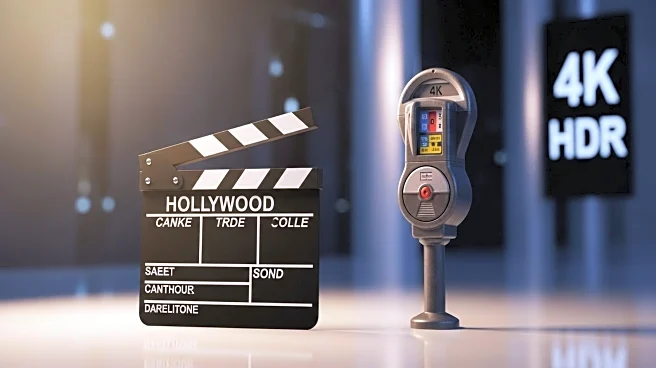What is the story about?
What's Happening?
Raymond Cruz, known for his role as Tuco Salamanca in 'Breaking Bad,' was involved in a parking dispute in Los Angeles. The incident occurred while Cruz was washing his car outside his Silver Lake home. Three women parked their car close to Cruz, prompting him to ask them to move it to avoid getting wet. The women refused and began recording Cruz, who then turned around with a hose in hand, inadvertently splashing them with water. The women accused Cruz of intentionally spraying them and reported the incident to the police, leading to Cruz's arrest and five-hour detention. Cruz's agent, Raphael Berko, described the event as a misunderstanding and stated that Cruz does not have a criminal record. Cruz is scheduled for a court hearing on October 1, although no charges have been filed as of Tuesday afternoon.
Why It's Important?
This incident highlights the potential for everyday disputes to escalate into legal matters, especially involving public figures. For Cruz, the situation could impact his public image and career, given his recognition from popular television roles. The case also underscores the role of social media and recording devices in personal conflicts, as the women's decision to record Cruz contributed to the escalation. The legal outcome could set a precedent for similar disputes involving celebrities and the public, affecting how such cases are handled by law enforcement and the courts.
What's Next?
Cruz's court hearing is scheduled for October 1, where the legal proceedings will determine if charges will be filed. The outcome could influence Cruz's career and public perception, depending on whether the case is dismissed or pursued further. Stakeholders such as Cruz's management and legal team will likely focus on mitigating any negative publicity and ensuring a favorable resolution. The incident may also prompt discussions on privacy and recording in public spaces, potentially influencing future legal standards.
Beyond the Headlines
The incident raises questions about the balance between celebrity privacy and public accountability. As recording devices become ubiquitous, celebrities may face increased scrutiny in their personal lives, leading to potential legal and ethical challenges. This case could contribute to broader discussions on the rights of individuals to record public figures and the implications for privacy and consent.















